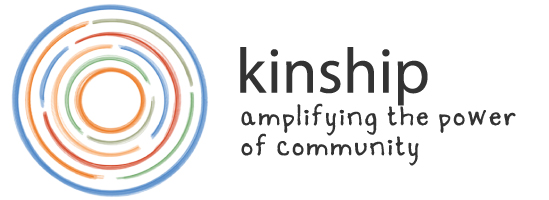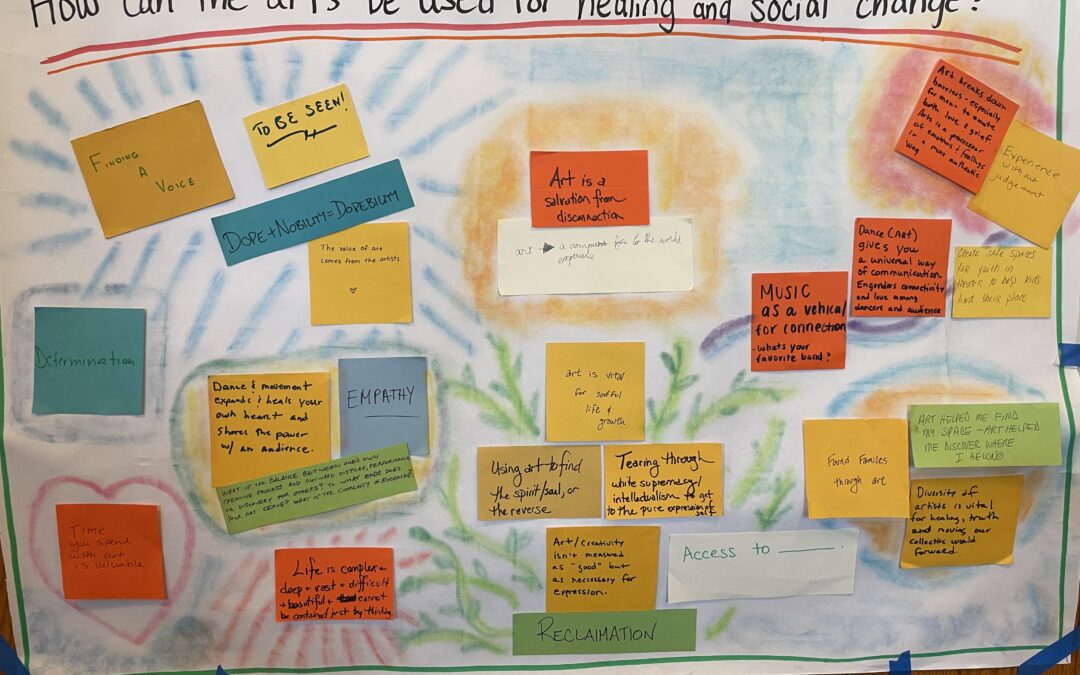In conversations with a friend who grew up in a village culture on the land of her ancestors in Nigeria, I recognize that there is an experience of generous supportive community that I haven’t known. I inherited a culture that prizes individualism and mobility, where people are driven to compete and fear “the other.” An underlying scarcity is built into systems. We have pictures in our heads of corporate ladders, a top and a bottom, and a social safety net. (Now, that’s a precarious image for a society!)
In the US, communities are fragmented by how racism and divisions by class have segregated people. There are few opportunities to interact with and understand others’ points of view and experience.
This past weekend I got to experience how it could be different. The SeaChange Conference at Green Acre, a Bahai Center of Learning in Eliot, Maine, was a three-day conference where a diverse, multi-generational group explored these three questions:
- How can the arts be used for healing and social change?
- How might we highlight and amplify the work of BIPOC artists?
- What would it take for our community to create a resource-rich environment for artists and grow how we use arts for healing and social change?
We listened to artists tell their stories and then had spacious time for cross-pollinating conversations that allowed mutual learning. Workshops offered opportunities to participate in drawing, theater, dance and writing and there were performances to enjoy others’ artistic expression. The format allowed us to be in conversation with many different people, sharing ideas and stories across generations, race, and other aspects of identity and life experiences. Green Acre has hosted conferences on unity and racial amity since 1894. You could feel how people attending had trust in the hosts and the space. The level of honest sharing was profound.
One participant noted there are many diversity, equity, and inclusion (DEI) conversations and that everyone is getting the language down, but that we need more of these spaces, where we can fall in love with each other, so we care for each other and do things like we’d do for family.
I sensed people are hungry for this kind of meaningful conversation, in settings where they feel comfortable and safe to open up and be themselves. There’s a time for reading books and analyzing the problems, and there’s a time to invest in spaces where we can experience healthy community and see what we’ve been missing out on.
In her poem, This Morning, Mary Oliver described young chicks breaking out of their eggs and chirping for food. She wrote:
As to anything else, they haven’t had a single thought.
Their eyes haven’t yet opened, they know nothing about the sky that is waiting.
Or the thousands, millions of trees.
They don’t even know they have wings.

